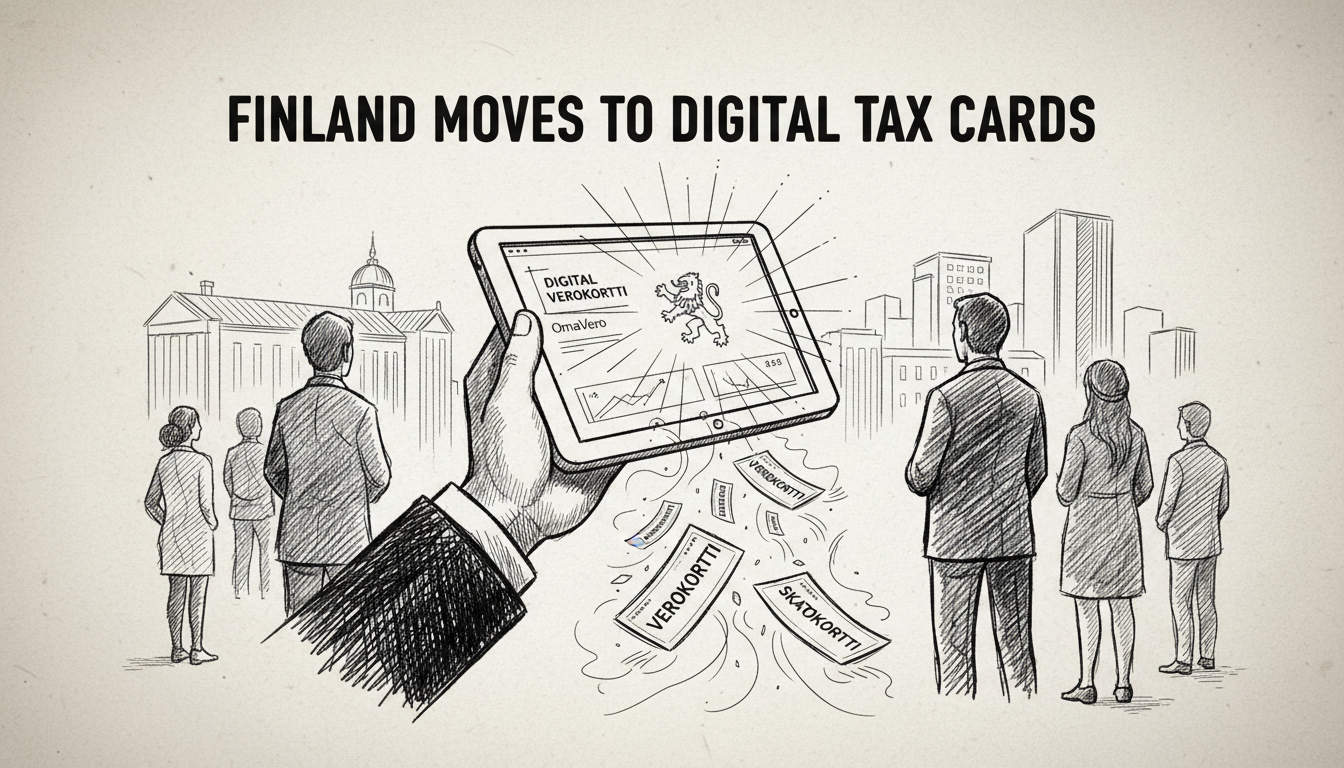Finland's tax administration will stop mailing paper tax cards to millions of citizens. This change marks the end of an era for Finnish bureaucracy. The shift affects approximately four million people who currently receive physical tax documents by post.
Senior tax official Päivi Ylitalo confirmed the transition in a recent announcement. She stated that tax cards and decisions will now be delivered exclusively through the OmaVero digital service. The change takes effect next year if parliament approves the government's proposed legislation.
About 2.8 million taxpayers will experience automatic data transfer to their employers through system interfaces. Most Finns already handle their tax information electronically. Ylitalo noted that even when individuals need to provide tax cards themselves, the majority choose digital methods.
The tax authority begins processing tax cards for the upcoming tax year this Friday. The first digital tax cards will appear in OmaVero accounts by Saturday. These documents become valid immediately at the start of January.
While most employers receive tax information automatically from authorities, some individuals must still submit their tax cards manually. The upcoming legislative changes also bring modifications to tax card content. Union membership fees will no longer be deductible for taxation purposes starting next year.
Unemployment fund membership fees present an interesting exception. They won't appear on tax cards despite remaining tax-deductible. Funds will report these fees directly to tax authorities for pre-filled tax returns in the final 2026 taxation.
This digital transition reflects Finland's broader push toward paperless administration. The Nordic nation has consistently ranked among Europe's most digitally advanced societies. Similar moves toward digital governance have occurred across Scandinavia in recent years.
For international residents in Finland, this change underscores the country's commitment to streamlined digital services. Expats should ensure they have active OmaVero accounts to access their tax documents. The system provides English language options for non-Finnish speakers.
The elimination of paper tax cards represents both environmental and efficiency gains. It reduces administrative costs and paper waste significantly. Some older citizens and those with limited digital access may face challenges adapting to the new system.
Tax authorities emphasize that support services remain available for those needing assistance with the digital transition. Local tax offices continue to provide in-person help for complex situations. The change ultimately modernizes a fundamental aspect of Finnish civic life.

